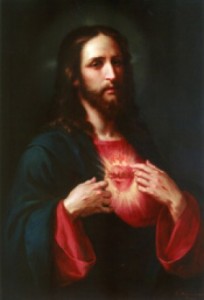During a recent retreat, to avoid the usual distractions of a crowded chapel during the conferences, I closed my eyes. The result was remarkable. I became far more actively engaged with the retreat master, a bishop. In blindness, there was an unobstructed encounter with the bishop’s easy voice, pleasant intonation, and compelling spiritual insights. (I was also successful in avoiding slumber, unlike a previous year’s retreat where, after closing my eyes, my snoring became so much of a distraction that I received a nudge in the ribs from a friend.)
Still, I would insist, under some circumstances, blindness of a certain kind can be a true aid to hearing. (Here is an interesting article about the “myth” that blind people hear, taste, and smell more acutely than the rest of us.)
In the Gospel, early in the ministry of Jesus, He’s surrounded by crowds, including a coterie of protective disciples, outside of Jericho. The blind man Bartimaeus calls out to Jesus and, after a few rebuffs from the self-appointed gatekeepers, Jesus responds to the blind man’s request to “see” and heals him. At first glance, the account points to the need to be healed of an inner blindness, the blindness of faithlessness. And that’s not a bad off-the-shelf homily message.
But a closer inspection of the account reveals that Bartimaeus may not have been blind in the spiritual sense. Although recognizing that Jesus comes from Nazareth (elsewhere in the Gospels we read, “Can anything good come from Nazareth?”), he refers to Jesus as “son of David,” a messianic title. Did he hear that Christ was born in Bethlehem, the City of David?
It seems likely Bartimaeus was more attentive to the happenings of the day than even those of Christ’s personal coterie. He obviously knew Jesus was a miracle worker, but more than that – by his use of the messianic title – Bartimaeus seemed to have concluded that Jesus was fulfilling the messianic prophecies of the Scriptures. Only a pious Jew, steeped in study, prayer and contemplation could make such a bold leap.
Could it be that, in his physical blindness, as he attended the weekly synagogue services, unencumbered by worldly distractions, Bartimaeus “saw” more than even the scribes and teachers of the Law? And when this presumably devout Bartimaeus heard of the mighty deeds of Christ, did his faith allow him to “connect the dots” to form the correct conclusion, that Jesus is the Messiah, the “son of David”?
If so, imagine the joy in the heart of Jesus as He heard the blind man’s salutation. Both unseen to each other, theirs was truly a heart-to-heart encounter, an encounter of invisible love.

There is a comical interlude that begs to be cited. Hearing the pleas of Bartimaeus, Jesus at last stops and tells His gatekeeper disciples to call him. At first the gatekeepers are obstacles to the blind man’s encounter with Christ (“And many rebuked [the blind man], telling him to be silent”); now they self-seriously advise him, “Take courage; get up, Jesus is calling you.”
The blind man didn’t need their homily; he just needed them to get out the way: “He threw aside his cloak, sprang up, and came to Jesus.” (To my eye, the message to the clergy is simple: If you can’t lead people to Christ, the least you can do is to get out of the way.)
Jesus then hears Bartimaeus’ unabashed request: “That I may see.” The response is immediate, with a hint of affection: “Your faith has saved you.” Of course the blind man was “saved” by the restoration of his sight. But if this conjecture is correct – that Bartimaeus in his faith recognized Christ as the Messiah – his salvation is something more than physical healing: Christ is welcoming him into the “Kingdom of God.” As He Himself proclaimed: “the Kingdom of God is at hand!”
This helps explain the final detail of the Gospel account. Unlike the ten lepers healed by Christ of their horrible infirmity, Bartimaeus immediately becomes His disciple and follows Him. Bartimaeus isn’t distracted by the multiplicity of images of his new world. Rather he uses his freedom from physical blindness to enter more deeply into a relationship with Christ. The unseen “heart-to-heart” relationship with Christ becomes a consciously visible “face-to-face” discipleship.
Yet there remains something beautiful about blindness. Before a baby encounters his mother “face-to-face,” he must encounter her in blindness in the womb. The baby’s unborn beating heart echoes his mother’s. The love between a mother and child is first “heard” with the beating of hearts. As with the pious blind man’s encounter with Christ, a baby in a mother’s womb is a wonderful metaphor for life in Christ, this side of eternity.
Before we are born into everlasting life to see Him face-to-face, we too must be attentive in silence and with faith in the womb of His Church – Holy Mother Church – where we hear a Mother’s beating heart of an ancient Faith. Our faith comes from such attentive hearing – heart-to-Heart. And Heart-to-heart.
On this side of eternity, we must return to a kind of faithful “contemplative blindness” to encounter the love and healing power of Christ.














